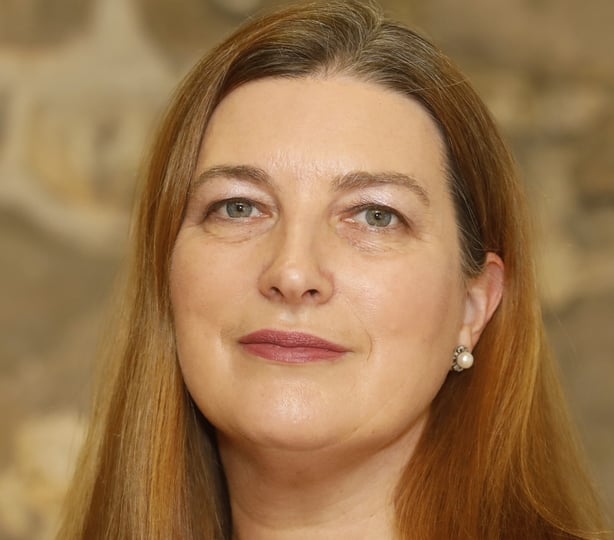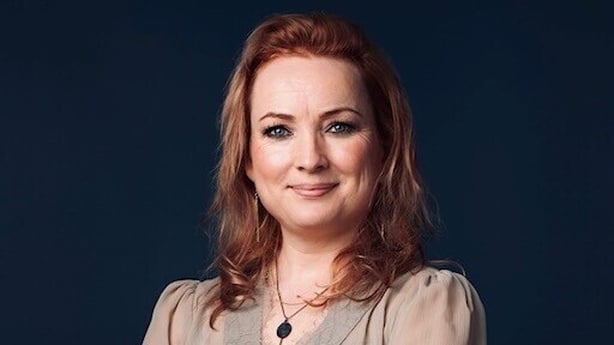The number of couples who are availing of free IVF has risen by 50% within a year.
Since the rollout of State-funded fertility treatment in September 2023, around 1,700 couples have been referred for IVF.
The Health Service Executive said initially around 100 couples a month were being referred.
However, in the latter stages of 2024 it had risen by 50% to 150 couples a month.
The six fertility hubs established by the HSE are receiving up to 550 referrals monthly.
Clinical Director of the HSE's National Women's and Infants Health Programme Dr Cliona Murphy said there was "a slow build up" initially but demand has increased steadily.
She said once people are in the system "they're really happy" and that there is "choice" across the country as to where people can attend services.

With the success rates being monitored across the public scheme, Dr Murphy said it is great to tell people that they will have a good chance of conceiving through this service.
"It is up to 40% success rate, overall, is what we are hearing back but, of course, that can depend. Younger couples maybe have a higher chance of success so that just has to be caveated," Dr Murphy said.
She said they are mindful also of the importance with regard to how people are treated as they avail of the service as not everyone has the successful outcome they had hoped for.
While there has been a broad welcome for this first phase, some concerns have been expressed that it is slow moving and restrictive.
We need your consent to load this rte-player contentWe use rte-player to manage extra content that can set cookies on your device and collect data about your activity. Please review their details and accept them to load the content.Manage Preferences
Chairperson of The National Infertility Support and Information Group Caitríona Fitzpatrick said it was "a big step" for the HSE, the Department of Health and private clinics to come together and roll it out but added, "we need to see it expanded".
"I hear some references sometimes that we have free IVF. We don't. We have a tiny percentage of people, we reckon less than 10% are actually able to avail of free IVF," Ms Fitzpatrick said.
A lack of timelines for the commitments to expanding certain services in the Programme for Government also came under criticism.
Read More: Being able to avail of fertility scheme 'amazing', says woman
"You do need timelines to plan around this," said Ms Fitzpatrick.
"A really important piece of work is to get the regulatory authority up and running to find out how many are seeking this treatment, what age groups, what geography, are they going it alone.
"We need to know to make it a better experience and provide better support."
Furthermore, she believes donor conception must be an "absolute priority in the public scheme, including for single people".
"We live in a world now where single people want to start their own family. That is why donors are such a huge part of this. We need an equal inclusive system."
Ms Fitzpatrick has also highlighted the need for the Government to commit to plans from Budget 2025 about supporting parents with secondary infertility.
"That is not covered in the current scheme, we need that to be relooked at in a compassionate way. It can be incredibly heartbreaking for people. It is such a huge shock…they are halfway through the family they thought they were going to have."
The HSE said it is currently engaging with the Department of Health in relation to the ongoing management of the publicly funded assisted human reproduction (AHR) treatment scheme.
This includes consideration of issues associated with the potential expansion of specific services and access criteria.
It said this process "may take some time".

Currently, both age and weight (Body Mass Index) form part of the check list for couples seeking public-funded fertility treatments.
There are other factors that need to be considered also when trying to conceive.
Dr Murphy said their observations show men are often not aware of how fertility can be impacted by lifestyle habits.
"Sometimes men are not quite as informed so the type of things we would ask would be are they smoking, because smoking affects sperm count, are they in the gym, are they using any steroid supplements.
"All of those things are really important, and I think maybe not recognised by men.
"Sometimes occupation can affect sperm count, whether that is long distance cycling or working in a hot environment or driving around an awful lot," Dr Murphy said.
She said they are currently looking at the specific needs of male patients and pathways for cohorts of patients as they look at ways to improve this service.
One of the driving factors for this push towards public-funded AHR was due to Ireland being ranked low in a global study on access to free IVF.
Ireland has since looked to its UK counterparts ahead of this rollout.
"We often do look at what occurs there," said Dr Murphy.
"We always need to look to the future as something that is sustainable, that standards are upheld," she said.
For now, the waiting time for patients who are due to attend a regional fertility hub for an initial appointment is approximately ten to 11 weeks while most are seeing a consultant within around six months.
For those on these waiting lists, it can be a stressful time.
Ms Fitzpatrick said people need to be aware of reaching out to others as they embark on this process.
"We get a lot of people coming to our support meetings," she said.
"A lot of people find they are the only one in their peer group going through this and others are conceiving no problem."
She said fertility struggles can also put a lot of pressure on a couple to rely on each other for emotional support and outside support can be beneficial.
She observed how discussions about family and children happen a lot but "we don’t have a history of open conversations about what happens when people run into difficulty conceiving."
"We talk a lot about wanting to start a family but don’t talk a lot about what happens if it doesn’t happen naturally," Ms Fitzpatrick said.
She envisages one stepping stone into Ireland’s future, where young people in college are not just being informed about their careers but also about what they need to be aware of if they do want to start a family in the future.
"That certainly doesn’t happen at the moment," she said.
We need your consent to load this rte-player contentWe use rte-player to manage extra content that can set cookies on your device and collect data about your activity. Please review their details and accept them to load the content.Manage Preferences







